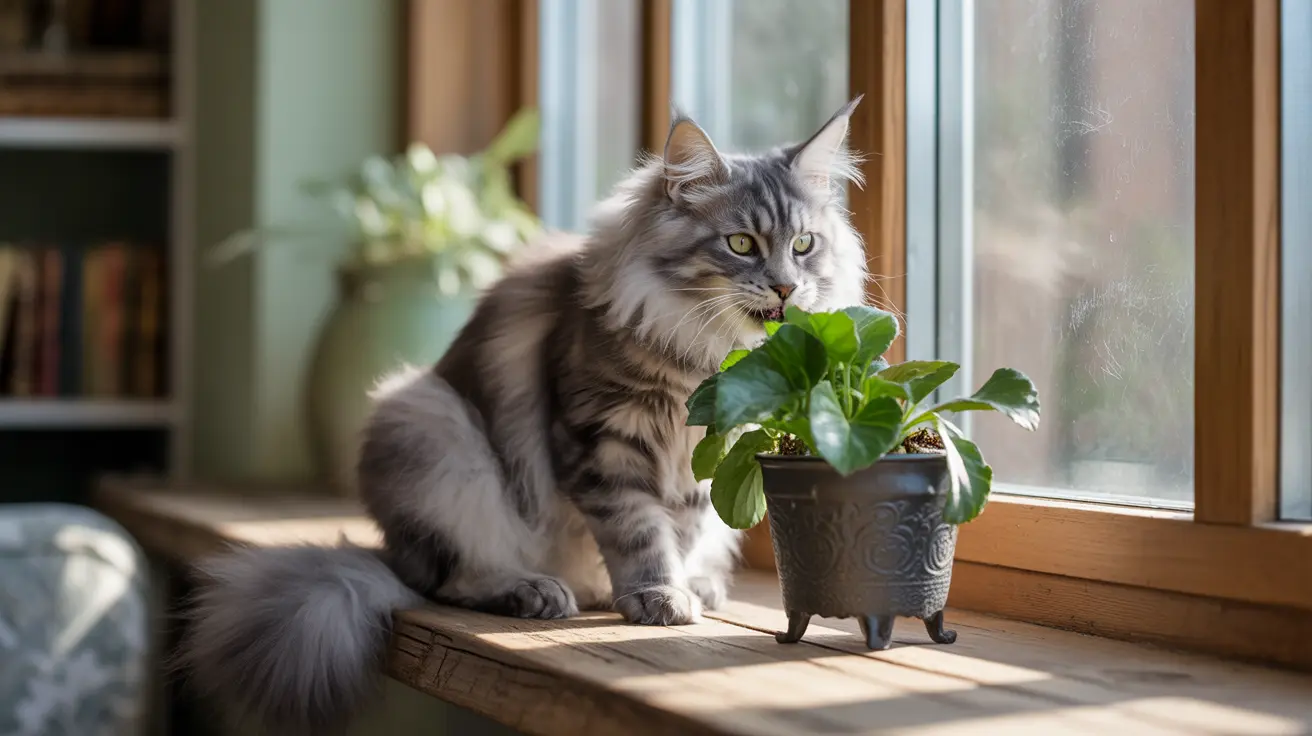Introduction
If you're a cat parent looking to add some greenery to your home, you might be wondering about the safety of cast iron plants around your feline friends. The good news is that cast iron plants (Aspidistra elatior) are non-toxic to cats, making them an excellent choice for pet-friendly households. This comprehensive guide will explore everything you need to know about keeping cast iron plants in a home with cats, including safety considerations and practical care tips.
Understanding Cast Iron Plants
Cast iron plants, scientifically known as Aspidistra elatior, are hardy evergreen perennials that have earned their name through their remarkable resilience. Native to Japan and China, these plants feature long, dark green leaves that can grow up to two feet in height. Despite belonging to the lily family, cast iron plants are a rare exception in that they pose no toxic threat to cats.
Safety Profile for Cats
Unlike many common houseplants that can be dangerous to cats, cast iron plants have been officially confirmed as non-toxic by the ASPCA. This means that even if your curious cat takes a nibble, there's no risk of serious poisoning or adverse reactions that would require emergency veterinary care.
However, it's important to note that while cast iron plants aren't toxic, consuming any plant material can cause mild digestive upset in cats. Their digestive systems aren't designed to process large amounts of plant matter, so some cats might experience temporary discomfort if they eat the leaves.
Keeping Cast Iron Plants in a Cat-Friendly Home
Plant Placement
Even though cast iron plants are safe for cats, strategic placement can help prevent unwanted plant-cat interactions:
- Place plants on high shelves or hanging baskets
- Use rooms that cats don't have access to
- Create physical barriers around the plants
- Keep plants away from favorite cat perches
Maintenance Tips
To ensure both your cast iron plant and cat remain healthy:
- Avoid using toxic fertilizers or pest control products
- Clean fallen leaves promptly
- Secure pots to prevent tipping
- Monitor for signs of plant damage from curious cats
Signs of Plant-Related Issues in Cats
While cast iron plants aren't toxic, it's still important to monitor your cat if they've been munching on any houseplant. Watch for:
- Mild vomiting or diarrhea
- Decreased appetite
- Excessive drooling
- Changes in behavior
Frequently Asked Questions
Is the cast iron plant toxic to cats if they nibble or chew on its leaves?
No, cast iron plants are not toxic to cats. The ASPCA has confirmed that these plants are safe for cats, even if they chew on the leaves.
What mild symptoms might cats experience if they eat parts of a cast iron plant?
While not toxic, cats might experience mild digestive upset, including temporary vomiting or diarrhea, simply due to ingesting plant material their bodies aren't designed to digest.
How can I safely keep a cast iron plant in a home with curious cats?
Place the plant in an elevated location, use deterrent sprays, provide alternative cat-safe plants, and ensure the pot is stable to prevent tipping.
Are cast iron plants safer for cats compared to other common houseplants like lilies or pothos?
Yes, cast iron plants are significantly safer than many common houseplants. Unlike lilies (which can cause kidney failure) or pothos (which contain harmful calcium oxalates), cast iron plants are completely non-toxic.
What should I do if my cat shows signs of digestive upset after eating a cast iron plant?
Monitor your cat closely and ensure they have access to fresh water. If symptoms persist or worsen, consult your veterinarian, though serious complications are unlikely.
Conclusion
Cast iron plants offer cat owners a wonderful opportunity to enjoy beautiful indoor greenery without worrying about toxic effects on their pets. While these plants are completely safe, responsible plant ownership still involves proper placement and monitoring to ensure both your cats and plants thrive in harmony. With the right approach to care and placement, cast iron plants can be a perfect addition to your pet-friendly home.






